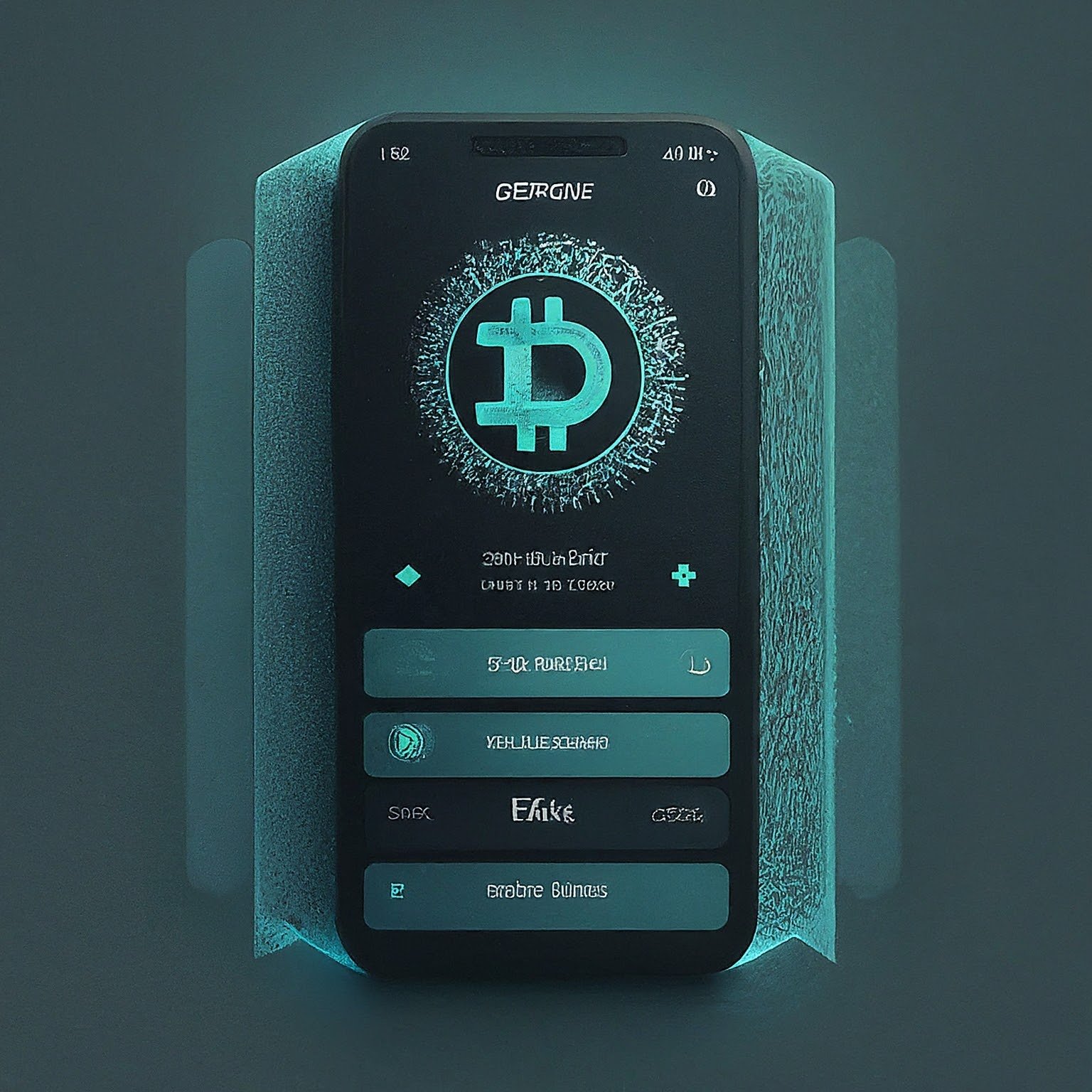Cryptocurrency has transformed the way we think about money, but as we navigate this digital world, the question of how to secure these virtual assets becomes increasingly important. Enter decentralized wallets—your personal vault in the vast digital landscape of the internet. Unlike traditional banking or centralized digital wallets, where the institution holds your key, decentralized wallets give you complete control, freedom, and, importantly, security over your assets.
Through the innovative use of blockchain technology, these wallets provide an impenetrable shield against unauthorized access, ensuring your digital wealth is both safe and sound. So, whether you’re a seasoned crypto enthusiast or new to the digital currency scene, understanding the role of decentralized wallets in safeguarding your investments is crucial. Let’s dive into how these wallets work and why they’re your best bet for cryptocurrency security.
Understanding Decentralized Wallets

What are decentralized wallets?
Decentralized wallets are a type of digital wallet used to store and manage cryptocurrency assets without the control of a central authority. These wallets operate on blockchain technology, allowing users to keep their digital currencies secure and under their control. The key feature of a these wallet is its ability to give users full control over their private keys, which are essential for accessing their cryptocurrency holdings. Unlike traditional banking systems, there’s no middle-man in a decentralized wallet, making transactions direct and more transparent. Also read Hardware vs. Software Crypto Wallets: Which is Better?
How do decentralized wallets differ from centralized wallets?
The main difference between decentralized and centralized wallets lies in the control and storage of the user’s private keys. In centralized wallets, a third-party service holds and manages the private keys for the users. This setup can be convenient but introduces risks as it puts trust in an intermediary’s security measures. On the other hand, decentralized wallets give users complete control over their private keys and, subsequently, their assets. This means that only the wallet owner has access to the funds, reducing the risk of theft from external breaches. Furthermore, transactions in decentralized systems are peer-to-peer, without the need for an intermediary, promoting a higher level of privacy and security.
Importance of Security in Crypto Assets
Risks associated with storing cryptocurrency
Storing cryptocurrencies comes with its own set of risks, such as hacking, phishing attacks, and even human errors like losing access to private keys. The digital nature of cryptocurrencies makes them a target for cybercriminals. Centralized platforms can be vulnerable to security breaches, leading to significant losses for users.
Benefits of using decentralized wallets for enhanced security
Using decentralized wallets for storing cryptocurrency offers several security benefits:
full control of private keys, reducing the risk of theft from third-party breaches.
enhanced privacy, as transactions do not require personal information.
reduced vulnerability to hacking, as decentralized systems do not present a single point of failure.
Examples of security breaches in centralized wallets
Several high-profile security breaches in centralized wallets have highlighted the importance of robust security measures. For instance, the Mt. Gox exchange hack in 2014 saw 850,000 bitcoins stolen, dramatically impacting the cryptocurrency market. Another example is the 2016 Bitfinex hack, where nearly 120,000 bitcoins were stolen. These incidents underline the risks involved in entrusting assets to centralized platforms and the benefits of opting for decentralized wallets for better security. Also read Crypto Security: US Wallets with Instant Fiat Purchase.
Features of Decentralized Wallets
Decentralized wallets come packed with features designed to provide users with an unmatched level of security and autonomy over their digital assets. Let’s delve into some of these core features.
Encryption and private keys
One of the most critical features of decentralized wallets is robust encryption and the use of private keys. These wallets use advanced cryptography to ensure that only the owner of the wallet, who has the private key, can access the funds. This means that even if someone gains access to your computer or mobile device, they cannot access your cryptocurrency without your private key.
Ability to remain in control of your digital assets
Unlike traditional banking systems or centralized exchanges, where the institution has ultimate control over your funds, decentralized wallets give full control to the user. There’s no intermediary with the power to freeze or confiscate your assets, granting you unparalleled autonomy over your digital currency. This feature is especially appealing to those who advocate for financial sovereignty and those wary of censorship from centralized entities.
Compatibility with various cryptocurrencies
Another significant advantage of decentralized wallets is their compatibility with multiple cryptocurrencies. Most decentralized wallets support a broad range of digital currencies, from Bitcoin and Ethereum to lesser-known altcoins. This flexibility allows users to manage diverse portfolios within a single wallet, simplifying the process of tracking and trading various cryptocurrencies.
Steps to Secure Your Assets with Decentralized Wallets
Securing your cryptocurrency investments involves more than just selecting a wallet. It requires a proactive approach to safeguarding your digital assets from vulnerabilities. Here are essential steps to enhance your security with decentralized wallets.
Choosing the right decentralized wallet for your needs
Before diving into the world of decentralized wallets, it’s crucial to select one that fits your specific needs. Consider factors like supported cryptocurrencies, security features, ease of use, and user reviews. Researching and comparing different wallets can help you find one that aligns with your security and usability preferences.
Setting up and securing your wallet
After choosing a wallet, the next step is to set it up correctly and secure it. This process usually involves creating a strong, unique password and backing up your wallet. Most decentralized wallets will generate a recovery phrase during setup. It’s imperative to write down this phrase and store it in a secure location. This phrase will be necessary if you ever need to recover your wallet.
Best practices for maintaining security
Maintaining the security of your decentralized wallet involves ongoing diligence. Here are a few best practices:
- Regularly update your wallet software to ensure you have the latest security features.
Be cautious of phishing attempts and suspicious links that could compromise your wallet’s security. - Only use secure, private networks when accessing your wallet to prevent vulnerabilities that could be exploited on public Wi-Fi.
- Consider using additional security measures like hardware wallets or multi-signature wallets for an extra layer of protection.
By understanding the features of decentralized wallets and following these steps, you can significantly enhance the security of your cryptocurrency assets. Remember, in the world of digital currency, taking proactive measures to safeguard your investments is paramount.
Advancements in Blockchain Technology for Wallet Security
Blockchain technology has transformed the way we think about financial security, especially in the realm of decentralized wallets. This innovative technology underpins decentralized wallets, making them incredibly secure compared to traditional banking systems.
How blockchain enhances the security of decentralized wallets
Blockchain technology secures decentralized wallets through its unique structure. Each transaction is recorded as a block of data and added to a chain in a linear, chronological order. This process ensures that every transaction is encrypted and linked to the previous one, creating a tamper-proof record. Additionally, decentralized wallets are not stored on a single server but across a network of computers, making hacking attempts much more difficult. This distributed ledger technology ensures that users have full control over their digital assets, reducing the risk of unauthorized access and fraud.
Future developments in decentralized wallet security
The future of decentralized wallet security looks promising with ongoing advancements in blockchain technology. Developers are working on enhancing privacy features, improving smart contract capabilities, and implementing multi-signature transactions that require approval from multiple users before processing. Moreover, innovations such as quantum-resistant blockchains are being explored to counteract potential threats from quantum computing. As these technologies evolve, users can expect even more robust security measures to protect their digital assets, ensuring that decentralized wallets remain a safe and reliable choice for managing cryptocurrency holdings.
Conclusion
Securing your digital assets in the fast-paced world of cryptocurrency is paramount. Decentralized wallets offer a robust solution to protect your holdings from cyber threats and human errors. By leveraging blockchain technology, these wallets give you complete control over your assets, ensuring that only you can access and manage them. Despite the potential learning curve, the benefits of enhanced security and privacy far outweigh the initial setup challenges. Remember, in the realm of digital currencies, being proactive about your wallet’s security isn’t just wise; it’s essential. Let’s embrace decentralized wallets and take a significant step towards safeguarding our digital fortunes.







